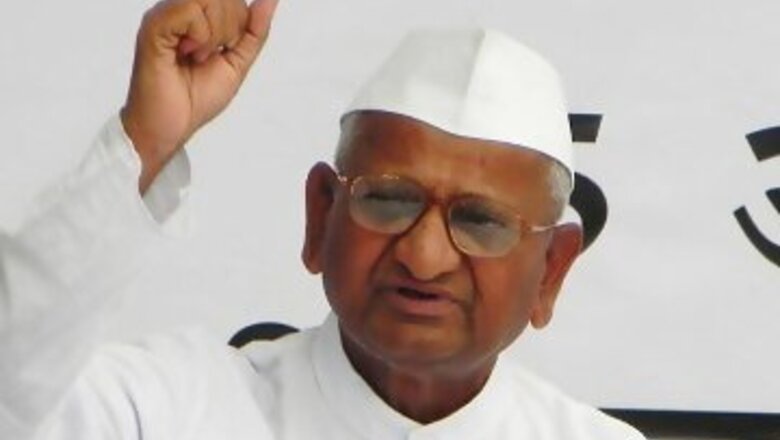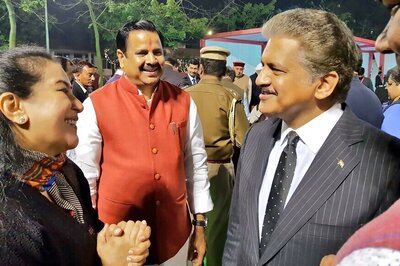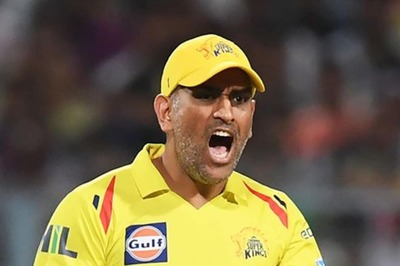
views
One of the striking similarities of the UPA–II and the Narendra Modi sarkar is the fact that the major challenges to the government have come from forces other than the established opposition parties.
The dismantling of UPA–II started with Supreme Court orders in 2G scam case directing investigation, prosecution etc. Thereafter, the most potent offensive was lead by Anna Hazare, Arvind Kejriwal, Prashant Bhushan, Ramdev and others in Lokpal agitation. None of the main actors in these offensives had any background in party politics. The established opposition parties were left as mute spectators during these political fights. It is these forces which brought UPA – II to ruins. Modi was plain lucky to be able to take over the reins.
This trend is continuing with the present government also. The opposition to the intolerant cultural-social posturing of the government from the established political parties hardly got any traction. It is the writers’ protests which caught people’s imagination. With active help from the government (through its inept handling) the protests showed the signs of snowballing into a big political controversy. Then the Congress happened to it. Sonia Gandhi and Rahul Gandhi led a march to the Rashtrapati Bhawan in support of the writers’ protests. The protests dwindled soon. The writers were better off without Sonia and Rahul.
The biggest onslaught against the Indian Universities (possibly after Bhaktiyar Khilji) has been launched by the present government. The protests against these policies which have caught our imagination are again not from the opposition benches in Parliament. They are from the students of the University of Hyderabad and Jawaharlal Nehru University (JNU).
It is important to attempt to understand the reason for this trend and its possible impact on our society and politics. After 68 years of independence almost all the existing opposition political parties have been in government at some point of time or other. When they were in power they too committed more or less the same sins for which they now target the ruling party. There is no better (worse!) example than the Congress, the mother of all political sins.
Further, the existing political parties have no intra-party democracy. Consequently, they are unable to nurture conditions from which new leadership with a clean image can emerge from the grassroots, and provide a fresh message. The Nehru-Gandhi dynasty has been leading the Congress for 68 years. Karunanidhi is the Chief Ministerial candidate of the DMK in Tamil Nadu assembly elections at the age of 93. V. S. Achuthanandan can be the CM candidate of the Left in the Kerala Assembly elections at the age of 92. The way Modi Sarkar is conducting itself, it is possible that L K Advani may be nursing hopes to be a prime ministerial candidate at the age of 92 in the 2019 elections.
However, sometimes, it is just a case of chor chor mausere bhai. Arun Jaitley in government is displaying the same reluctance to act against Karti Chidambaram which BJP in opposition showed when it came to raising the issue of Robert Vadra’s land deals. The bosses of these established political parties are worldly wise. They know that the people who live in glass houses shouldn't be throwing stones at others. However, in the process, they are leaving the field open for new forces like the Lokpal Movement, AAP and Swaraj Abhiyan and risking their own future.
Now the more important question is what does this trend augur for our future?
The first possible outcome is that new political players are likely to emerge. Some of the existing political forces will be at risk. Either in their area of influence or their existence altogether. The Congress in Delhi is a case in point. The party which ruled Delhi for 15 years until recently is facing a threat of annihilation in Delhi. More and more exposure to media and faster and better modes of communication may make this process of political evolution quicker.
This trend may also lead to establishing some forces of opposition outside party politics. Anna Hazare has tried to position himself as one such force. The forces of opposition outside party politics may not be a bad idea if they have moral fiber and intellectual depth.
In fact, India has always had a tradition of presence of powerful forces of opposition outside party politics. JP is the most successful example. Even Mahatma Gandhi from the days of interim government to his assassination was, in fact, one such force. Less a political opposition and more of a conscience keeper though. Mahendra Singh Tikait’s BKU and RSS also, without participating in party politics, have tried to take up the role of the opposition.
Whatever may be the outcome of this process there is no denying the fact that we are going to witness as much jostling for the space for opposition as for the government. With more and more players emerging in the opposition space, we are going to witness lot of ambition and action there. Let us hope that we will get clean, creative and better politics and not merely new political players.
(Santosh Kumar is a Delhi based advocate. They views express in the article are his personal opinion and does not reflect the stand of Network18).




















Comments
0 comment